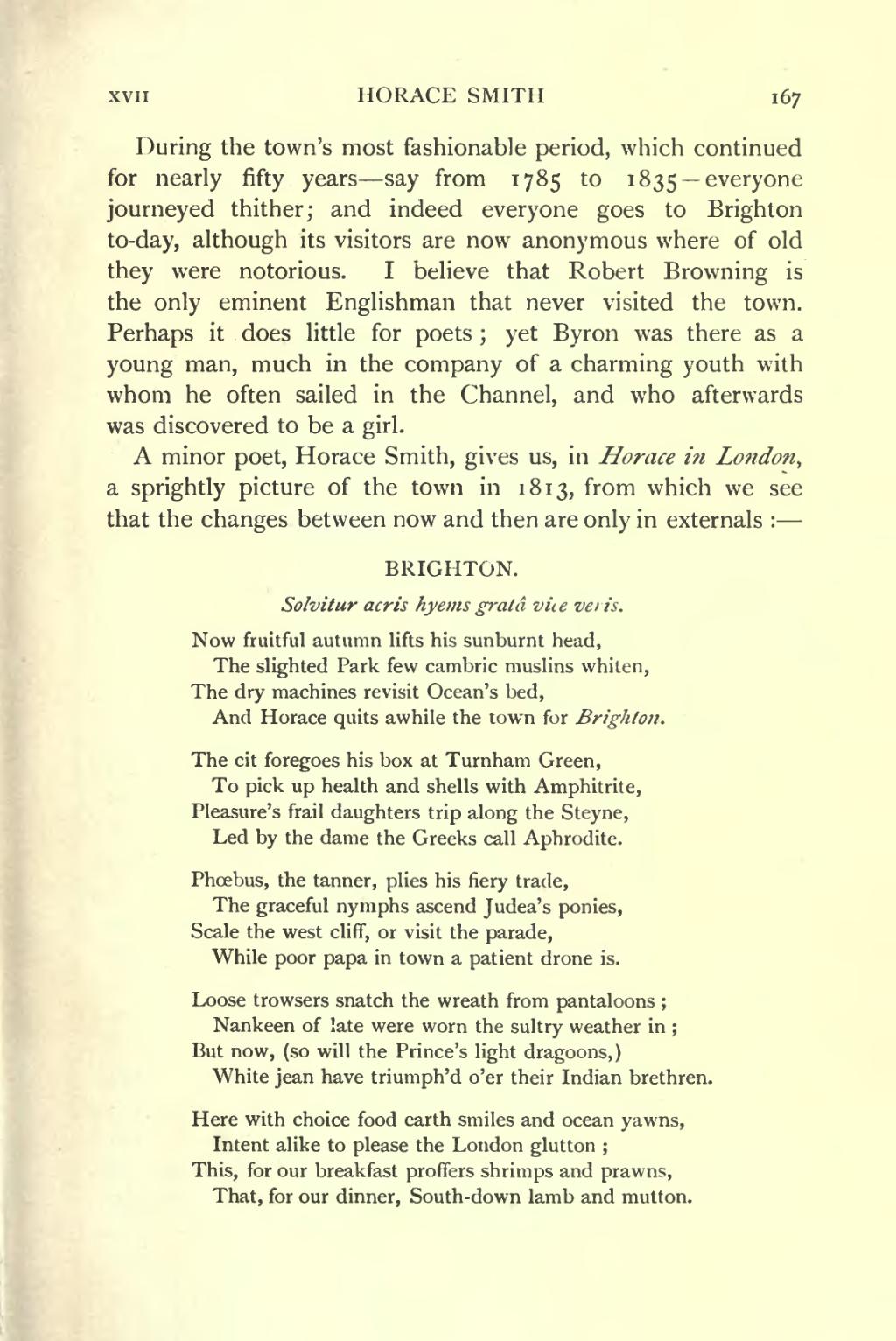During the town's most fashionable period, which continued for nearly fifty years—say from 1785 to 1835—everyone journeyed thither; and indeed everyone goes to Brighton to-day, although its visitors are now anonymous where of old they were notorious. I believe that Robert Browning is the only eminent Englishman that never visited the town. Perhaps it does little for poets; yet Byron was there as a young man, much in the company of a charming youth with whom he often sailed in the Channel, and who afterwards was discovered to be a girl.
A minor poet, Horace Smith, gives us, in Horace in London, a sprightly picture of the town in 1813, from which we see that the changes between now and then are only in externals:—
BRIGHTON.
Solvitur acris hyems gratâ vice veris.
Now fruitful autumn lifts his sunburnt head,
The slighted Park few cambric muslins whiten,
The dry machines revisit Ocean's bed,
And Horace quits awhile the town for Brighton.
The cit foregoes his box at Turnham Green,
To pick up health and shells with Amphitrite,
Pleasure's frail daughters trip along the Steyne,
Led by the dame the Greeks call Aphrodite.
Phoebus, the tanner, plies his fiery trade,
The graceful nymphs ascend Judea's ponies,
Scale the west cliff, or visit the parade,
While poor papa in town a patient drone is.
Loose trowsers snatch the wreath from pantaloons;
Nankeen of late were worn the sultry weather in;
But now, (so will the Prince's light dragoons,)
White jean have triumph'd o'er their Indian brethren.
Here with choice food earth smiles and ocean yawns,
Intent alike to please the London glutton;
This, for our breakfast proffers shrimps and prawns,
That, for our dinner, South-down lamb and mutton.

